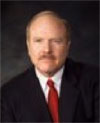Guest essay by Marshall Foster
Where did the concept of elections and of a people voting for their civil leaders first appear in history? It did not originate with Nimrod, the tyrant of Babylon. It did not originate with the Pharaohs, who created a nation of slaves to build their tombs. The concept that rulers should be elected by the ruled came from the loving mind and heart of God Almighty and is first recorded in human history in the book of Exodus.
Inspired by God, Moses’ father-in-law, Jethro, said to Moses, “You shall choose able men from all the people—God-fearing men of truth who hate unjust gain—and place them over thousands, hundreds, fifties and tens, to be their rulers.” (Ex. 18:21)
These magistrates (civil servants) were to be taken “out of all the people,” and not from any privileged class. The only qualifications for office required were, that they should be “able men, such as fear God, men of truth, hating covetousness, wise men, and understanding, and known among their tribes [known and trusted at the local level].”
As the ancient Hebrew Republic developed and prospered over the next 400 years, elections with local accountability restrained the human tendency toward despotism which dominated all other nations of the era.
The New Testament confirms the accountability of leaders to the people both in church and state. In the church, elders are chosen and are subject to specific character qualifications. Civil rulers are not exempt from this accountability Romans 13 teaches that they are “ministers of God” and as such are to be servants of the people to punish evil doers and reward the righteous.
In the ensuing centuries, biblical principles of local accountability of magistrates and equality under the law began to permeate Ireland, Scotland, England and parts of Europe. As the Bible was unleashed into the hands of the people during the Reformation honest elections to determine civil leaders began to be promoted in the English Bill of Rights and Scottish National Covenant etc. The biblical concept of a government of the people, elected by the people would mature in the New World, 3,000 miles from the tyrants who clung to their unelected power in Europe.
Early Americans understood the need to maintain liberty through the election of church leaders and civil magistrates. In the Plymouth colony, the people carefully voted for godly leaders every year. However, accountable elections were not permitted in the rest of the world. For example at that time in England, King Charles I shut down and silenced the elected Parliament for over a decade.
The pastors of colonial America led the way in teaching the biblical imperative of honest elections. In fact, pastors were chosen to give Election Sermons to entire colonies each year to remind and implore the people to hold their representatives accountable.
Annual Election Sermons began as early as 1633 and served as a perpetual memorial continued down through the generations from century to century. By 1691 the election days and their accompanying sermons were fixed by colonial law. Elections sermons were preached to the governor and legislature in Massachusetts for 256 years, in Connecticut for 156 years.
With America’s founding in 1796, elections were considered sacred in origin and a mandate from God. Voting was seen as absolutely necessary for the maintenance of civil and religious liberty.
Dr. Samuel Langdon, a President of Harvard and lifelong pastor, declared in an Election Sermon in 1788, “Preserve your government with the utmost attention and solicitude, for it is the remarkable gift of heaven. From year to year be careful in the choice of your representatives, and all the higher powers of government. Fix your eyes upon men of good understanding, and known honesty; men of knowledge, improved by experience; men who fear God, and hate covetousness; who love truth and righteousness, and sincerely wish the public welfare. Beware of such as are cunning rather than wise, who prefer their own interest to everything; whose judgment is partial, or fickle, and whom you would not willingly trust with your own private interests… Let not men openly irreligious and immoral become your legislators; for how can you expect good laws to be made by men who have no fear of God before their eyes, and who boldly trample on the authority of his commands?”
In Rev. Charles Chauncey’s election sermon of 1747, “Civil Magistrates Must be Just, Ruling in the Fear of God,” (II Sam. 23:3) he fervently admonishes his listeners regarding the importance of voting to choose their representatives. He says that they, as voters, must be people of integrity and justice. He says, “[you must] exercise your elective- power… under the influence of … that omnipresent righteous God, whose eye will be upon you, to observe how you vote and for whom you vote, and to whom you must finally render an account, before the general assembly of angels and men, for this day’s transaction.”
The liberating influence of Christians upon the electoral process and the choice of our leaders were predominant throughout the 19th century. But, progressively throughout the 20th century, Christians have neglected their civil responsibility before God and have withdrawn from cultural leadership.
“Only about 50% of Christians in America are registered to vote. Of those, only 50% show up at the polls,” meaning 75% of all Christians are ignoring their biblical responsibility to vote. If Christians would vote, candidates who share their beliefs and values would win.
As Dietrich Bonhoeffer says, “Silence in the face of evil is itself evil: God will not hold us guiltless. Not to speak is to speak. Not to act is to act.” Not to vote is to vote.
– Dr. Marshall Foster
From the World History Institute Journal, September 2014 Issue, Dr. Marshall Foster, President.
Compelling speaker and writer, Dr. Marshall Foster has kept the forefront of teaching God’s Providential, overcoming and victorious history for decades.
© 2014 Used by permission



No comments yet.